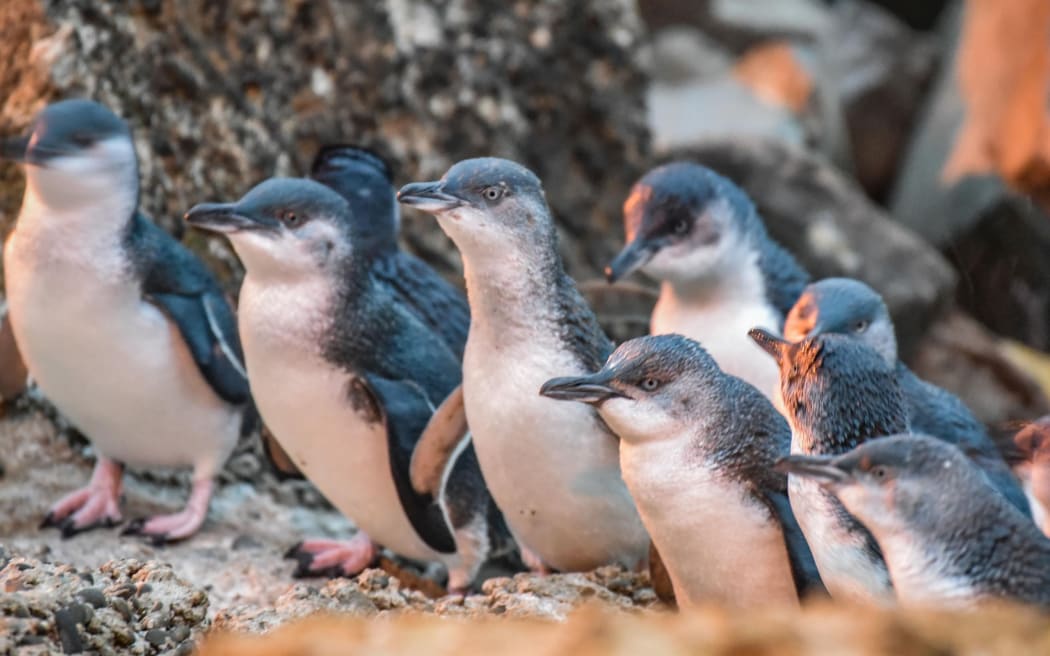Climate change is being blamed for more than 40 little blue penguins/ kororā washing up dead over a week at a Far North Beach.

Photo: Tourism Waitaki/ Cindy Mottelet
Local resident Carol Parker found the lifeless bodies of the kororā on Tokerau Beach in Doubtless Bay on 8 May.
But a day earlier on a different beach, she had spotted a kororā, weak and alone on the sand.
She scooped it up and took it home, and went in search of some advice on how to help him back to life.
"I rang some vets to find out how to feed it and what how we could keep it alive.
"It wasn't injured... It looked very exhausted.
"The vet suggested we keep it warm, and that little slivers of raw fish dipped in a little bit of water. And that would just maybe help to save its life."
But the small baby penguin could not be saved.
"The very next day we were on Tokerau beach where there were 22 penguins that were on the beach expired.
"Some of them looked like they just landed just the night before or within the last 12 to 24 hours.
"They looked quite fresh. There was one or two other birds also that were dead."
Parker has lived in the area for 21 years.
About five years ago she found 10 dead penguins but said she had never seen anything in numbers that high.
What she didn't know, is earlier that week, on 2 May, the Department of Conservation had reports of another group of more than 20 dead penguins wash up on the same beach.
So why is it happening?
Department of Conservation's Graeme Taylor said it was mostly to do with the temperature of the water .
After the first finding of dead kororā, seven were sent for testing.
Results showed signs of starvation and hypothermia - no blubber to keep them warm in the water.
"They prefer to find their food in cold water.
"But when you have got La Nina conditions like we've had this summer with the constant northeasterly winds coming in from the subtropics you'll get the sea temperatures raised above normal, and the food supply for the penguins diminishes with those warm conditions."
He said the majority of the birds washing up would be babies that haven't got the strength to search deeper down into the water - or the endurance to keep going.
"Normally a penguin of this type is around about a kilo, but a lot of these really starving birds are down around half that weight, you know, 500 - 600 grams.
"They're just skin and bones.
"They've got no fat on their body which they need, they're in the water the whole time.
"So they need that insulation of the fat layer to keep them warm. And they haven't got that they haven't got much muscle tissue on them."
Mass deaths happen usually about once a decade, and Taylor said with over 40 gone in just one week from a single beach, this could be one of those years.
"The worry that we've got is that as global sea temperatures rise with the warming effect that we get from carbon dioxide in the atmosphere is that these events are going to become more frequent.
"And as a result, there's probably going to end up pushing the penguins out of the far north, the temperatures up there will not be able to be tolerated in terms of food supplies"
The Department of Conservation said the little blues are the warning sign of the impacts to come from climate change.


